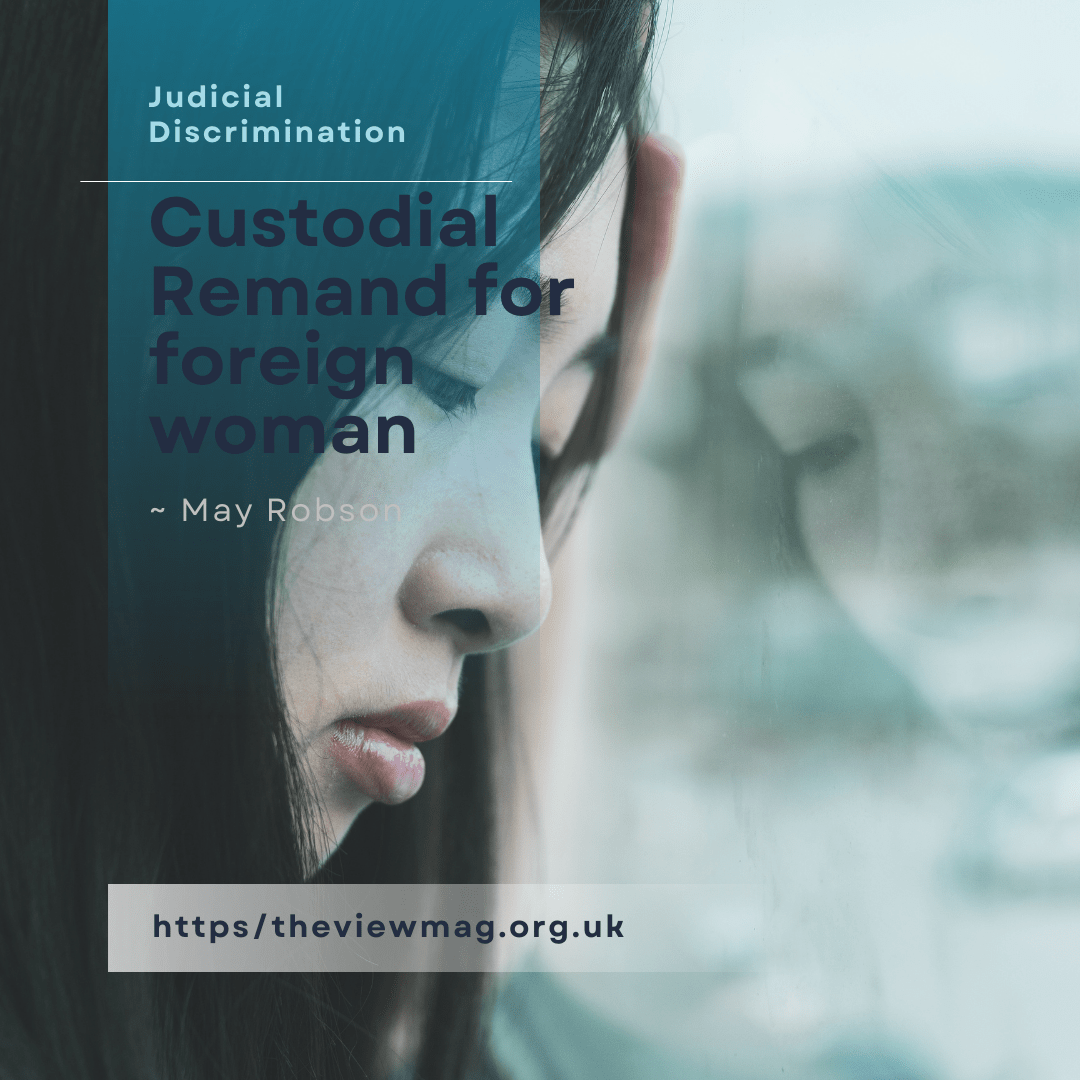
How the Bail System disadvantages Foreign National Women
Foreign national women are more likely to be remanded in custody while awaiting trial or sentencing than British women, often for less serious offences. They make up a significant and increasing proportion of prison admissions on remand in England and Wales, raising concerns that compliance with national and international standards of justice is being eroded in practice.
A new report by May Robson (@mayrbsn) for the Griffins Society examines the disparity in treatment of foreign national women by focusing on the context and processes in which bail decisions are made. In her recent study, “A suspect population? An examination of bail decision making for foreign national women in criminal courts in England and Wales” her findings provide insights that can illuminate and inform a wider transformation in the use of custodial remand.
The research
By law, defendants in criminal proceedings have a right to bail in England and Wales while awaiting trial or sentencing. The right to bail can be overturned and detention in custody imposed, known as custodial remand, only as an exceptional measure of last resort.
Data made available through Freedom of Information (FOI) requests shows that on average 16% of women admitted to prison on remand are foreign nationals. This increased slightly between 2017 and 2019. A higher proportion of these women were remanded for less serious offences than was the case for British national women. What’s more, research suggests that – far from a last resort – custodial remand is over-used for women, whose complex needs and caring responsibilities make this experience particularly devastating.
Widely recognised as a vulnerable and disadvantaged group in the criminal justice system, foreign national women are almost entirely absent in research and official criminal justice data are lacking. The study uses qualitative research methods to suggest some of the processes by which they are put at a disadvantage when being considered for bail. Findings are based on 11 interviews with stakeholders including: project workers who support foreign national women, defence lawyers, prosecutors, and two weeks of observations of remand hearings at two London magistrates’ courts.
Key findings:
This study found systematic failures to respect the right to bail for foreign national women effectively in practice. Four main themes were identified:
- Disparate treatment by the police: Likelihood of custodial remand is much greater if police detain defendants or recommend custodial remand. Both are a common occurrence for foreign nationals – or those perceived to be foreign – where due to difficulties gathering information and immigration duties, they are treated as suspected of breaking the law (whether criminal or immigration).
- Poor participation at bail hearings: Measures introduced to cut costs and enhance efficiency, including remote hearings, cuts to legal aid and the privatisation of translation services, discriminate against foreign national women who are a disadvantaged and vulnerable group so less equipped to dispute suspicions and effectively claim their rights. They are reduced to spectators rather than participants in their case, vulnerable to time on remand, poor defence and miscarriages of justice.
- ‘Foreigners’ as grounds for suspicion: With the growing interdependence of crime and border control, foreignness has become grounds for suspicion in bail cases, used as a proxy to assess lack of community ties and the risk of absconding overseas. While more likely to be the victims of trafficking and modern slavery, foreign national women are perceived as doubly deviant: transgressors of the law and societal expectations of women. Even when recognised as victims, those without a safe address can be remanded in custody for their own protection.
- Material disadvantages: Material factors including no recourse to public funds, the ban placed on work and study and lack of legal status, place foreign national women at a significant disadvantage when there is consideration for alternatives to remand. Ongoing immigration proceedings or deportation orders make custodial remand more likely.
Conclusions and recommendations
Bail decisions are a subjective assessment of risk: there are no certainties to a defendant’s future behaviour, only predictions. With the expansion of border control in the criminal justice system, foreignness has become grounds for suspicion when assessing criminality and risk. In this framework, racialised ideas about immigration and crime skew risk assessment and drive punitive bail decisions for foreign national women. This places a disproportionate burden on an already disadvantaged and vulnerable group, who are less equipped to dispute these decisions and have limited access to the alternatives to custodial remand. Foreign national women emerge as a suspect population to be contained and excluded through custodial remand. This study raises fundamental questions about whether the bail system – while seemingly benign and routine – can be described as procedurally fair.
In a climate of policy uncertainty following Brexit and the coronavirus pandemic, this systematic discrimination is only likely to become more prevalent and entrenched. Further qualitative research is needed to monitor bias or disproportionate outcomes for foreign nationals and the impact of remand decisions for foreign national women. There is an urgent need for criminal justice data disaggregated by gender, ethnicity and nationality to be collected and regularly published, to understand the inequities embedded in bail decision making.
About the author
May Robson is a former support worker at a charity for women affected by immigration and criminal justice systems and a 2019-2020 Griffins research fellow. She tweets @mayrbsn
